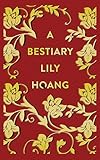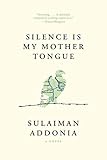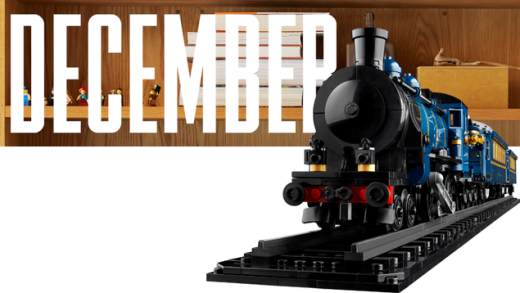Pandemic, Uprisings, Election. 300,000 senseless deaths and
untold senseless misery, Black America demanding to be heard and honored, The
Election. I got COVID, was sick for a couple of months, recovered, and leaned
into audiobooks—blessedly available from our shuttered libraries—as I tried to
regain stamina. In 2020, as in all other years, books were tonic and balm,
escape, and lifeblood. I tend to group them in categories, even as categories
are both useless and limiting.
OBITUARY READS. I find gems reading writers’ obits, which I see as carrying on their legacy rather than a morbid fascination with death. A standout this year was Tunisian-French-Jewish-Arab writer Albert Memmi, who died at age 99. His autobiographical novel The Pillar of Salt (translated by Edouard Roditi) is a rich mélange of growing up poor and Jewish in the heart of a thriving polyglot city, the smells and tastes of Tunisian cooking, a young man’s thirst for education, and an interrogation of colonial oppression. I read my first Harold Bloom (I’d been avoiding him for years)—Jesus and Yahweh: The Names Divine—a fascinating exploration of cultural appropriation (Christianity appropriating Judaism). And while these do not qualify as Obit Reads, I’ll lump them here: The House of Childhood by Marie Luise Kaschnitz (translated by Anni Whissen), a weird and wonderful dreamlike visit to childhood, and Animal Farm by George Orwell (uncomfortably prescient).

GRIEF. This year, there was plenty to go around. I loved Grief’s Country: A Memoir in Pieces by Gail Griffin, a blunt and searing look at widowhood; Bessel van der Kolk’s The Body Keeps the Score: Brain, Mind, and Body in the Healing of Trauma, a deeply humanitarian approach to treating trauma through identifying how the body holds it; The Smallest Lights in the Universe: A Memoir by Sara Seager, a renowned astrophysicist who weaves her journey to find life in the outer reaches of the universe with her trail through marriage, motherhood, widowhood, and beyond.

MUSIC. I caught up with Stanley Crouch’s gorgeously written Kansas City Lightning: The Rise and Times of Charlie Parker. I loved the short, insightful essays in concert pianist Stephen Hough’s Rough Ideas: Reflections on Music and More, and the shimmering writing in Wolf Wondratschek’s Self Portrait with Russian Piano (translated by Marshall Yarbrough). I was curious to learn about iconic twentieth century pianist Vladimir Horowitz’s young male lover in Lea Singer’s novel The Piano Student (translated by Elisabeth Lauffer) and I luxuriated in the beauty of Philip Kennicott’s Counterpoint: A Memoir of Bach and Mourning.

MEMOIR. I found Grace Talusan’s The Body Papers an elegantly composed, intense and important memoir about child sexual abuse, growing up Filipino in America, and so much more. I was struck by the craft and power in Lily Hoang’s A Bestiary, fragmented essays about injured family and love relationships and the strains of stereotype and career. Written in fast paced, accessible prose, Sopan Deb’s Missed Translations: Meeting the Immigrant Parents Who Raised Me is a world-spanning effort to understand the parents he couldn’t know as a child. I adored poet Natasha Trethewey’s Memorial Drive: A Daughter’s Memoir, a heartrending revisiting of her mother’s murder; essayist Paul Lisicky’s Later: My Life at the Edge of the World, a loving and eloquent look back at the early days of the AIDS epidemic, and poet Mark Doty’s What Is the Grass: Walt Whitman in My Life, a gorgeously written memoir organized around Doty’s lifelong adoration of America’s troubadour.

NONFICTION. I was riveted by Karen Armstrong’s deep dive into the development, role, and meaning of scriptural interpretation across the world’s major religions in The Lost Art of Scripture, and astounded by the complex communications amongst trees explored in Peter Wohlleben’s The Hidden Life of Trees: What They Feel, How They Communicate – Discoveries from a Secret World (translated by Jane Billinghurst). Merlin Sheldrake’s Entangled Life: How Fungi Make Our Worlds, Change Our Minds & Shape Our Futures is a gripping, turn-your-world-upside-down-and-inside-out examination of some of earth’s smallest life forms. As a scientific neophyte, I appreciated Neil deGrasse Tyson’s clear explanations in Astrophysics for People in a Hurry. And Ijeoma Oluo’s So You Want to Talk About Race, a must-read for we white people grappling with our own racism.




NOVELS [mostly]. There are too many to do justice here, but here are some I found memorable: André Aciman’s beautifully written Call Me by Your Name (gay coming of age story, movie about same) and Mitchell James Kaplan’s Into the Unbounded Night (a sweeping and absorbing investigation into early Roman Christianity as it split off from Judaism). Donna Miscolta’s linked short story collection, Living Color: Angie Rubio Stories, manages to be both light and serious in its treatment of a young Mexican immigrant facing prejudice that threatens her dreams. I was totally taken in by Brit Bennett’s The Vanishing Half (critical insights into the pain surrounding the act of passing); and Yaa Gyasi’s Transcendent Kingdom (in lovely prose, a scientist probes race and drug addiction and the meaning of family). Bernadine Evaristo’s Girl, Woman, Other is a marvelous celebration of Black womanhood and love; Charles Yu’s Interior Chinatown is a brilliantly structured takedown of Chinese stereotypes, Andrew Krivak’s stark and stunning The Bear follows the last girl on earth; Sulaiman Addonia’s Silence is My Mother Tongue covers life in an East African refugee camp, replete with societal taboos, sibling bonds, and the mysteries of language and silence. I listened to Luis Alberto Urrea’s The House of Broken Angels which he reads in laugh-out-loud-while-you-cry astonishing family storytelling that I hated to finish. My introduction to Toni Morrison’s The Bluest Eye and Sula were also through listening. In an incredibly generous gift to her readers, Morrison narrates these novels herself. I hope I can hold onto the sound of her voice forever. And finally, I read George Eliot’s The Mill on the Floss for the first time. The drama! The agony! The misogyny! The biting social commentary! The pathos! Maybe I needed to wait this long to begin my love affair with her. I’m already infatuated with Daniel Deronda and I’ve only just begun.
More from A Year in Reading 2020
Do you love Year in Reading and the amazing books and arts content that The Millions produces year round? We are asking readers for support to ensure that The Millions can stay vibrant for years to come. Please click here to learn about several simple ways you can support The Millions now.
Don’t miss: A Year in Reading 2019, 2018, 2017, 2016, 2015, 2014, 2013, 2012, 2011, 2010, 2009, 2008, 2007, 2006, 2005
The post A Year in Reading: Martha Anne Toll appeared first on The Millions.
Source : A Year in Reading: Martha Anne Toll












